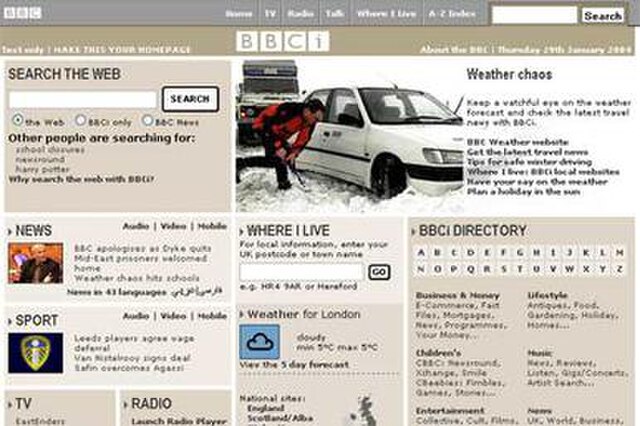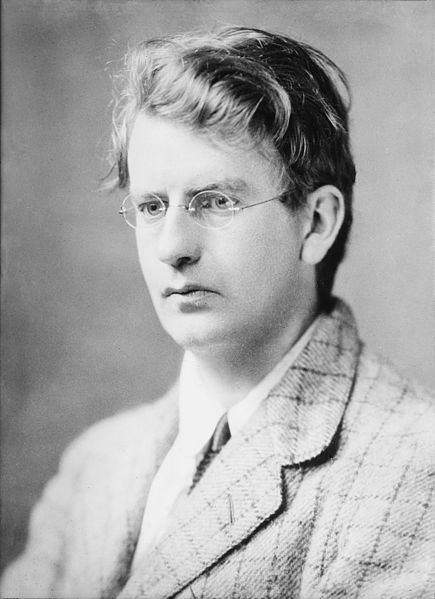BBC Online, formerly known as BBCi, is the BBC's online service. It is a large network of websites including such high-profile sites as BBC News and Sport, the on-demand video and radio services branded BBC iPlayer and BBC Sounds, the children's sites CBBC and CBeebies, and learning services such as Bitesize and Own It. The BBC has had an online presence supporting its TV and radio programmes and web-only initiatives since April 1994, but did not launch officially until 28 April 1997, following government approval to fund it by TV licence fee revenue as a service in its own right. Throughout its history, the online plans of the BBC have been subject to competition and complaint from its commercial rivals, which has resulted in various public consultations and government reviews to investigate their claims that its large presence and public funding distorts the UK market.
The BBC Networking club, 1994
BBC website as it appeared in 1997
BBCi website navbar, 2004
The British Broadcasting Corporation (BBC) is a British public service broadcaster headquartered at Broadcasting House in London, England. Originally established in 1922 as the British Broadcasting Company, it evolved into its current state with its current name on New Year's Day 1927. The oldest and largest local and global broadcaster by stature and by number of employees, the BBC employs over 21,000 staff in total, of whom approximately 17,900 are in public-sector broadcasting.
The Radio Times masthead from 25 December 1931, including the BBC motto "Nation shall speak peace unto Nation"
Television pioneer John Logie Baird (seen here in 1917) televised the BBC's first drama, The Man with the Flower in His Mouth, on 14 July 1930, and the first live outside broadcast, The Derby, on 2 June 1931.
King George V giving the 1934 Royal Christmas message on BBC Radio. The annual message typically reflects on the year's major events.
Statue of George Orwell outside Broadcasting House, headquarters of the BBC







